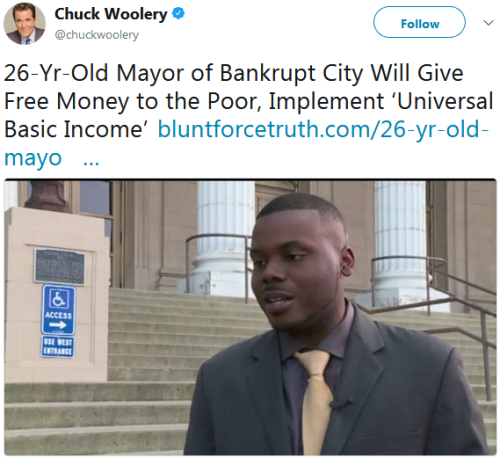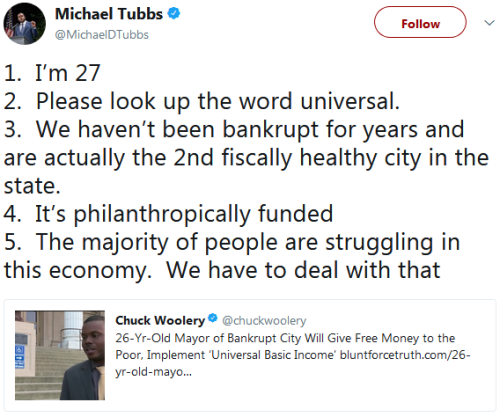weaselle:niggazinmoscow: This is what every mayor should be doing.He’s the mayor of Stockton
weaselle:niggazinmoscow: This is what every mayor should be doing. He’s the mayor of Stockton California, he’s piloting an experimental guaranteed income/universal income study program called SEED, partially to give financial help to some low income people, but at this point mainly to provide more scientific sources for citing these kinds of programs as viable in larger programs and for our greater economy. It’s testing the low end of the possible range, a small amount of money with a small sample group. For the study, just 125 residents are receiving only $500 a month, with no strings on how to spend it.He was elected to city council in Stockton in 2013 at about age 22. In 2017 he was elected Mayor of Stockton (getting 70% of the vote and beating a republican incumbent mayor) And shorty afterward the study began.Here’s an article from october of 2019 detailing how it’s been goingIt’s long and all of it is very interesting to me but here are some highlights… the economic decisions they made during the first five months of the program were “really rational,” said Stacia Martin-West … the co-principal investigator on the project. Each recipient was given a debit card that automatically loads with $500 each month, so the researchers can categorize spending. Of the money tracked, 40 percent went towards food. Sales and merchandise made up another quarter of the monthly spending, and about 12 percent was spent on utilities.About 43 percent of SEED recipients are currently working full or part-time, according to the researchers. 20 percent reported a disability, 8 percent had retired, 5 percent were students, and 11 percent are taking care of parents or children (I suspect this means they live with them for little or no rent – for example with elderly parents who have already paid off their mortgage and own the home outright – and spend their time as caretakers, using the UBI supplement to live on) … only 2 percent said they weren’t actively looking for work. (and if you total that up you get 89% with a left over 11% who must be healthy and able to work, aren’t going to school or taking care of someone who is unable to care for themselves, and are not working but are currently seeking work.)When Paradela, who works with children who have autism, first got the SEED postcard in the mail, she was skeptical. Getting a large, no-strings-attached grant like this seemed too good to be true.After talking to researchers and social workers about the program, Paradela felt a little more confident. And when the money finally showed up that first month, “it came just in time,” she said: Her car battery had died, and she needed money to fix it. A few months later, her car was hit by a driver making an illegal U-turn. If the vehicle stayed out of commission, she wouldn’t be able to get to work, or visit her mother in the hospital down in Hollister.Recovering from an accident like this can plunge many Americans into debt: The Federal Reserve Board estimates that 40 percent of Americans can’t cover an unexpected $400 expense; other studies put that destabilizing amount at $1,000. If it had been a normal month, Paradela wouldn’t have been able to cover it, either. -- source link
Tumblr Blog : niggazinmoscow.tumblr.com

